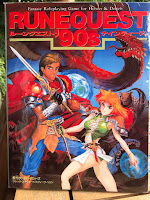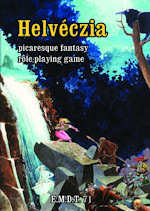The Jack-of-all-trades corresponds to what is called a rogue in the original T&T rules. The issue I have with that term is that whilst it originally fit in well with the idea I have of the 'default' adventurer (the Grey Mouser is the seminal rogue, and he is as capable in spell-casting as in combat as in thievery), the term itself has gradually become synonymous with thief over the years in the context of fantasy rpg's.
I believe that the author of the recent fantasy rpg Lamentations of the Flame Princess, which has marvellously bridged the gap between old school and new school gaming, has hit the same problem: in LotFP, the rogue class has been renamed Specialist. Whilst I agree with the renaming of the class, and with its description, I am not overly satisfied with the term— because it reminds me too much of the Specialist Mage.
Here's the deescription of the Specialist character class from LotFP (I reproduce it because it's freely available on its web-site):
Fighters are adventurers because they are so inured to death that they cannot settle down to a normal life. Magic-Users are those that have pursued the dark arts and are no longer welcome in society. Clerics are charged by their god to go forth and perform their special duties.
Specialists? They do it because they want to. Whether inspired by greed, boredom, or idle curiosity, Specialists are professional explorers risking life and limb simply because a less active life is distasteful to them. In some ways this makes them the only sane and normal adventuring characters, but in other ways it makes them the most unusual.
The Specialist is unique because the character class has no special abilities of its own. Instead, a Specialist is better at certain activities that all characters are able to do at a basic level.
I fully endorse the above for the Jack-of-all-trades of my Umathelan campaign!







